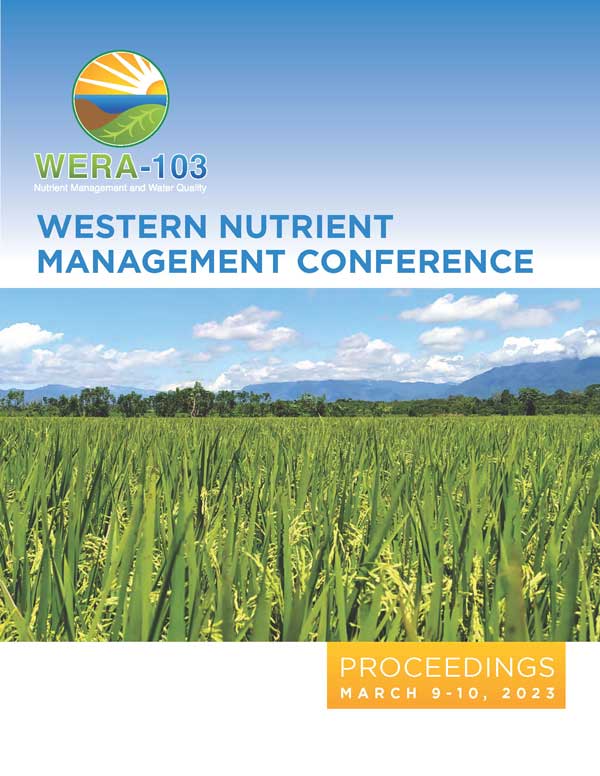Download the Conference Proceedings
Get your copy of the 2023 Western Nutrient Management Conference Proceedings today! Download the PDF file and view all of the available proceedings.
Proceedings
Authors
| Filter results1 paper(s) found. |
|---|
1. Nitrogen Management in Small Grains After AlfalfaSmall grains are commonly grown following alfalfa in Utah and the Intermountain West, especially during drought years as small grains require less irrigation than corn. Several studies across the country have shown that corn following alfalfa rarely needs N fertilizer, yet relatively few have evaluated the N needs of small grains. Furthermore, research on the N needs of small grains grown as forage vs. grain are even more sparse. The objectives of this research are to quantify the... C. Pound, M. Yost, E. Creech, G. Cardon, K. Russell, D. Despain, J. Gale, K. Heaton, B. Kitchen, M. Pace, S. Price, C. Reid, M. Palmer, M. Nelson |
